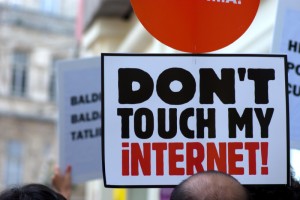Internet activists take on SOPA: A lesson for Independents?

Controversial anti-piracy legislation in Congress has recently hit a snag, one that can largely be attributed to the internet community’s intense activism. California Congressman Darrell Issa, the House’s Oversight and Government Reform Committee Chair, announced Saturday the postponement of a hearing about some of the most contested portions of the Stop Online Piracy Act (SOPA). The cancellation comes along with assurances from House Majority Leader Eric Cantor that the legislation won’t move to the House floor without a consensus.
The postponement isn’t the main issue; rather, it’s the events surrounding it.
What was to be examined was the impact of Domain Name Service (DNS) and search engine blocking on the internet- the requirement of internet service providers to block infringing websites. The legislation’s chief proponent, Texas Congressman Lamar Smith, has since announced that he's removing SOPA’s DNS blocking provision from the legislation.
“Although SOPA, despite the removal of this provision, is still a fundamentally flawed bill, I have decided that postponing the scheduled hearing on DNS blocking with technical experts is the best course of action at this time,” Issa said.
Here’s what’s key. Opposing the bill himself, Issa credited the internet community for speaking up about the legislation and added an insight about Congress as well.
“The voice of the Internet community has been heard. Much more education for Members of Congress about the workings of the Internet is essential if anti-piracy legislation is to be workable and achieve broad appeal,” he said (emphasis mine).
In just a few words, it appears that Congressman Issa summarized what could be a critical problem with lawmakers running the political system today. Whether it’s lack of education about the net or a deliberate legislative power grab, lawmakers in this instance have attempted to put forth what many view as a faulty bill, and have subsequently taken a lot of heat from the public.
The internet industry isn’t done challenging Congress either, especially with the Protect IP Act (the Senate version of SOPA) still alive with Senate Majority Leader Harry Reid's support. On Wednesday of this week, internet giant Wikipedia-along with other websites and companies- will raise more public awareness of the two internet bills by going dark for 24 straight hours.
Independents, being the fastest growing political demographic, should consider taking a page from anti-SOPA activists. By becoming a centralized voice, developing a focused message, and utilizing the net as the engine of their activism, they could become a powerful force which both parties could no longer afford to marginalize.



